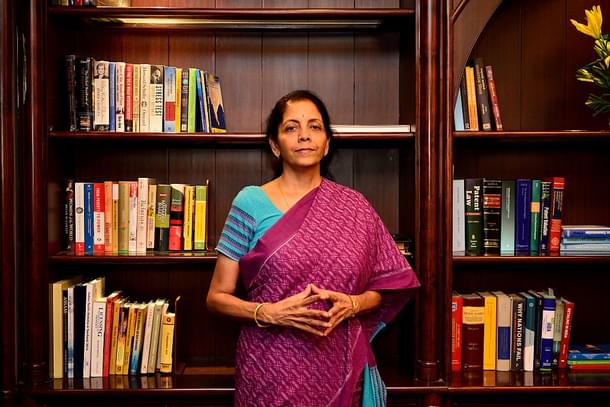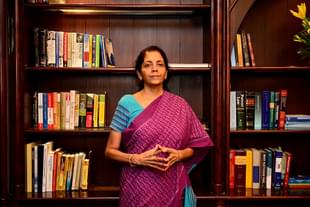Politics
Defence Minister Nirmala Breaks Glass Ceiling, But When Will Men Break The Glass Floor?
R Jagannathan
Sep 04, 2017, 01:58 PM | Updated 01:56 PM IST
Save & read from anywhere!
Bookmark stories for easy access on any device or the Swarajya app.


The elevation of Nirmala Sitharaman as Defence Minister, the first woman to hold full charge of what was previously only a male preserve, has stunned one and all with its audacity.
While some uncharitable comments on social media indicate that Narendra Modi may have given Sitharaman this portfolio to control the ministry indirectly by putting in a novice as its head, the reality is that any strong PM can directly intervene in at least three major ministries: Home, Ministry of External Affairs (MEA), and Defence. National security and foreign affairs have always been influenced by Prime Ministers, from Jawaharlal Nehru down to Indira Gandhi and Rajiv Gandhi, not to speak of Atal Behari Vajpayee. Even in the current ministry, this has been the case with the MEA, where Modi has driven major diplomatic initiatives, leaving Sushma Swaraj to focus on other issues.
During Sitharaman’s tenure, among the issues that she can deliver on is the question of formally giving women combat roles in the army (moves are afoot in this regard), creating a joint command for all three armed forces (again, some moves are afoot), and speeding up the indigenisation of more defence equipment (a key Modi initiative that is yet to bear fruit).
Despite a larger role for the PMO in Defence, Sitharaman will not be just a figurehead as defence minister, given the hard work she has been willing to put in at the ministry of commerce and industry.
Her elevation to Defence means that it may only be a matter of time before the other male-dominated bastions, including home and finance, also fall.
But an interesting question to ponder is the opposite one: when women can break the glass ceiling, why is it that governments are unwilling to break the glass floor, where competent men are kept away from ministries traditionally headed by women?
For example, why is it that only women have headed the ministry of Women & Child Development (WCD), when this ministry holds the key to social progress and the future of the country? Why aren’t capable male ministers considered for this position? Reserving WCD for women ministers is a patriarchal way of denying the importance of this crucial ministry.
Other stereotypes also need challenging. Why is it that the Ministry of Minority Affairs is always given to a token Muslim, when a secular and competent minister from any community could do the job better? Of course, this ministry may be redundant, especially when the idea is social empowerment of all the weaker sections, and not just religious minorities, but this begs the question: why can’t a capable Muslim be put in charge of more critical ministries from a national viewpoint? If we assume that Mukhtar Abbas Naqvi deserves a cabinet post, why give him this narrow playing field?
Nirmala Sitharaman has ended one kind of stereotyping that has defined who gets what ministry, but it is time to re-examine whether only women should head WCD, or Muslims the Minority Affairs one.
The glass floor needs breaking as much as the glass ceiling. Competence should be the determining factor in who gets to do what, not gender or religious identity.
Jagannathan is former Editorial Director, Swarajya. He tweets at @TheJaggi.





